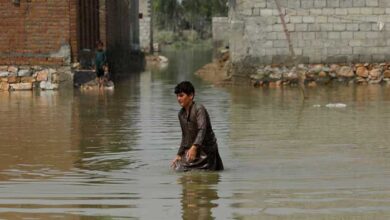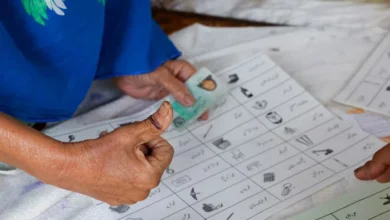ISLAMABAD: The persistent refusal of jailed Pakistan Tehreek-e-Insaf (PTI) founder Imran Khan to allow political dialogue with the government is now being seen by many within his own party as a major cause behind the deepening crisis that has landed scores of senior PTI leaders and workers behind bars, with more facing imminent convictions and disqualifications.
With May 9-related convictions of PTI leaders and workers by anti-terrorism courts gaining momentum, the party finds itself in an increasingly precarious situation.
Recently, many top leaders of the PTI, including opposition leaders in both the houses of Parliament and the Punjab Assembly, several MNAs, MPAs, and party stalwarts, have been sentenced to 10 years in prison in the May 9 cases. In the coming days, more such convictions of PTI MPs, leaders, and workers are expected.
These sentences come at a time when many PTI leaders, both convicted and still free, have expressed concern over the confrontational line taken by Khan. Party insiders reveal that senior leaders repeatedly urged Khan to permit dialogue with the government as a means to prevent arrests and disqualifications. However, he rejected every proposal, insisting that there would be no talks with the government or coalition parties.
Shah Mehmood Qureshi and four other senior leaders, already jailed for over two years, had also written an open letter describing dialogue as the only viable path forward. But Imran Khan ignored their appeal, insisting instead that a protest movement was the only solution.
In recent weeks, several members of the PTI parliamentary party have voiced alarm over the party’s strategic direction. Some feared that the continued policy of confrontation, particularly Khan’s attacks on the military leadership, would provoke further state action.
During internal discussions, senior members reportedly warned Khan that his refusal to engage politically could result in mass imprisonments and long-term disqualifications for key figures.
Despite these warnings, Khan remained inflexible, authorising no dialogue with the ruling parties, and expressing a willingness only to speak with the establishment — an offer that received no response from the military leadership.
With no political engagement and mounting legal pressure, the party’s leadership continues to face a string of convictions.
With top leaders convicted, others facing warrants, and parliamentary ranks being thinned through disqualifications, PTI now faces a serious dilemma.
Khan’s strategy of confrontation and rejection of dialogue has already cost the party dearly, and may cost more in the coming weeks, as further court decisions are expected.
Many within PTI fear the party may be headed towards political marginalisation, with its leadership either jailed, disqualified, or forced underground. Whether Khan reconsiders his position remains to be seen, but many of his colleagues are already paying the price for his choices.







